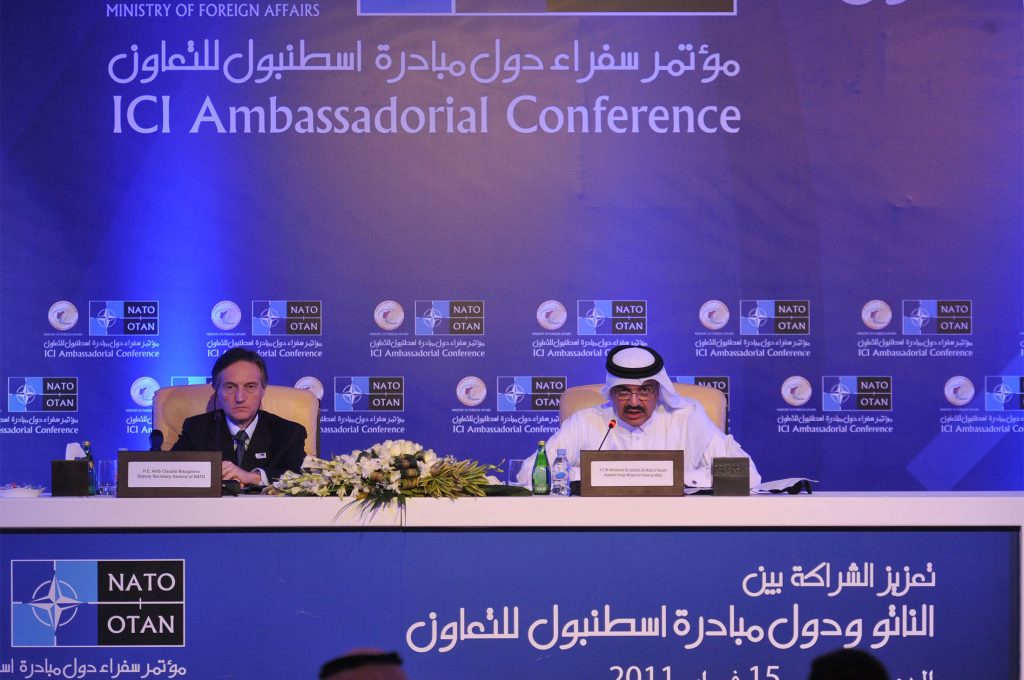
From Hani Al-Bahrani, the Kuwait News Agency: NATO has evolved from an Alliance focused on a singular threat, to an Alliance based on security partnership between the 28 members and the rest of the world, thanks to the military intervention in Libya, a senior NATO official said here.
"The Libya operation was a logical outflow of the view that we need to have partnerships with countries around the world. NATO would not have been intervened in Libya without the Arab League making this request to the UN Security Council," said Ivo H. Daalder, United States Ambassador to NATO (North Atlantic Treaty Organization).
His remarks were during a briefing on "US Policy on NATO"; as part of the US-NATO Program for Opinion Makers from the Middle East, held at NATO Headquarters last night. . . .
"The United Arab Emirates, Qatar, Jordan and Morocco not only supported the operation, but also participated in it. This gave us a lot of confidence that this was the right thing to do.
"Lebanon was also a key in the operation, as it was president of the UN Security Council at that time and enacted the 1973 resolution." The UNSC 1973 resolution formed the legal basis for military intervention in Libya, demanding "an immediate ceasefire" and authorizing the international community to establish a no-fly zone and to use all means necessary short of foreign occupation to protect civilians.
"We have no agenda other than the one that we believe it is important to work together to solve problems. This is a demand-driven partnership. A demand by Arab countries," Ambassador Daalder stressed. (photo: NATO)
Image: nato%2010%2012%2011%20NATO%20ICI.jpg
